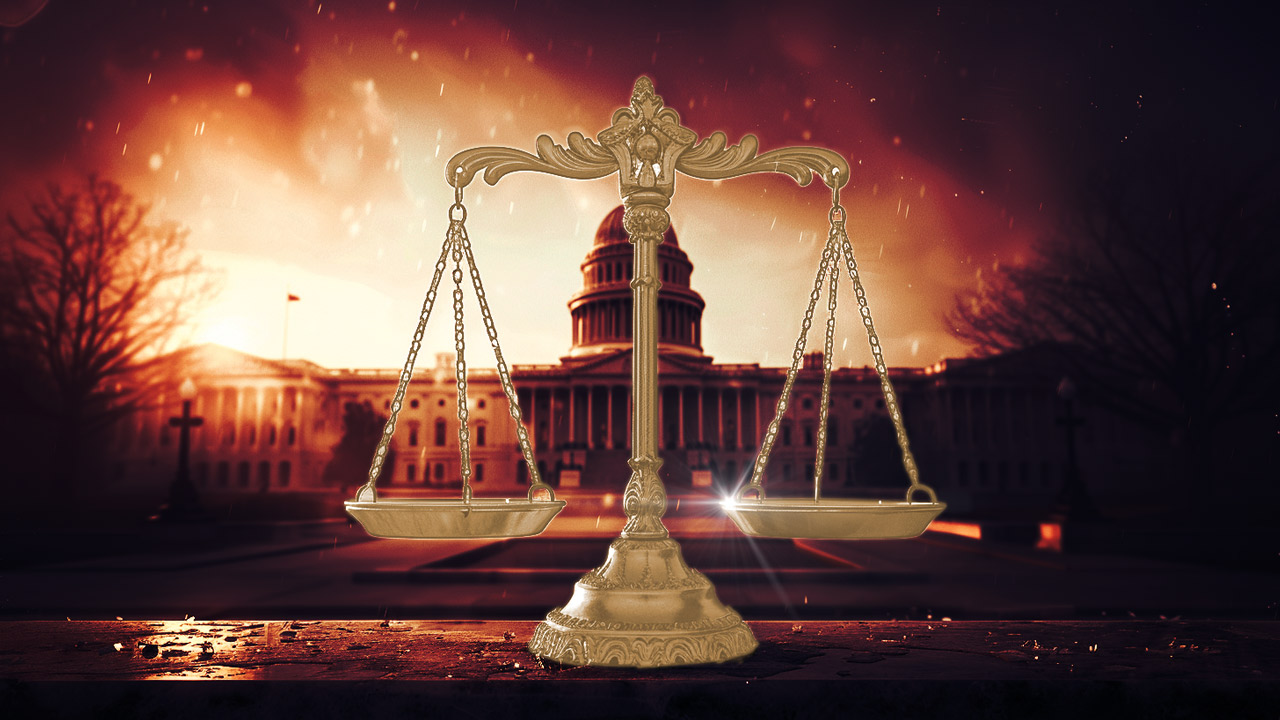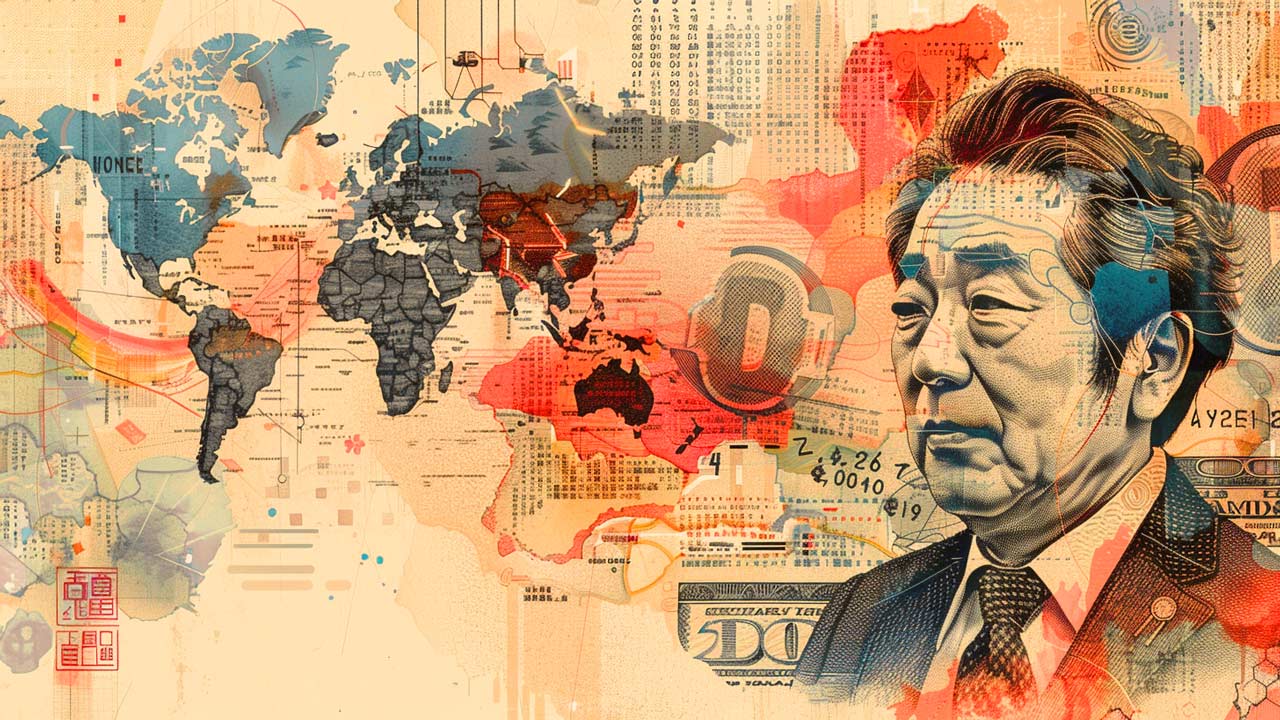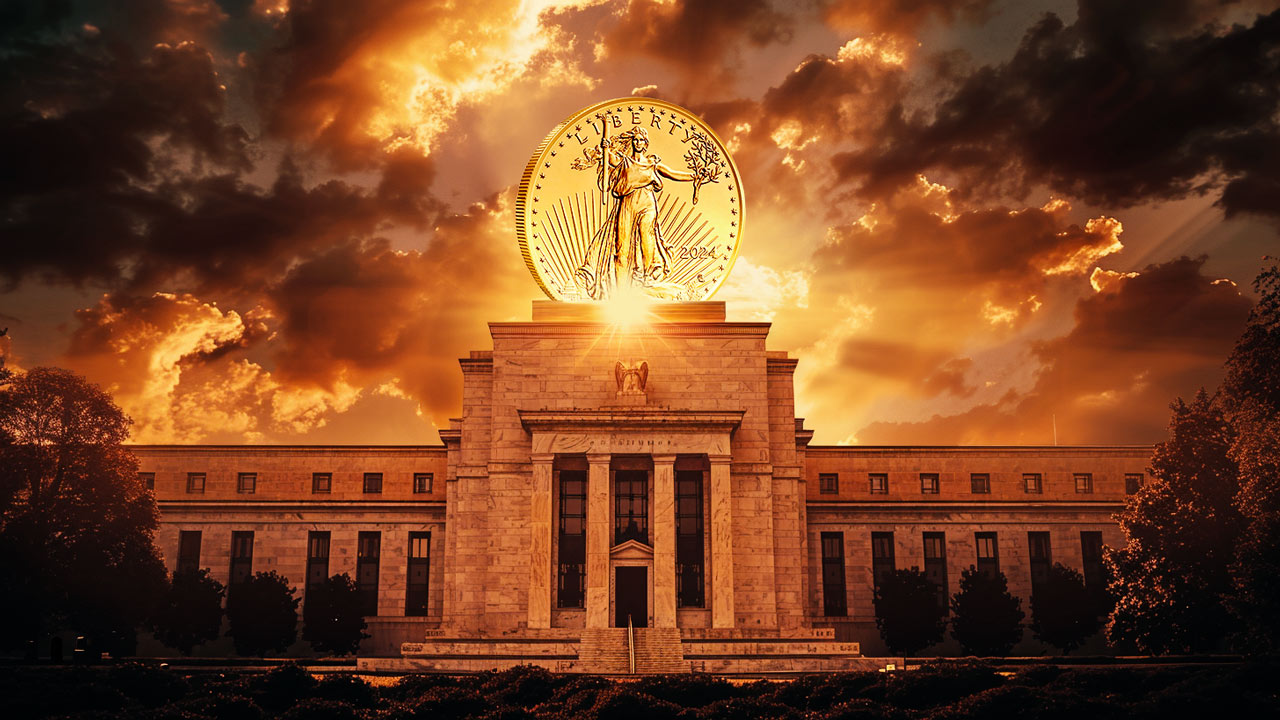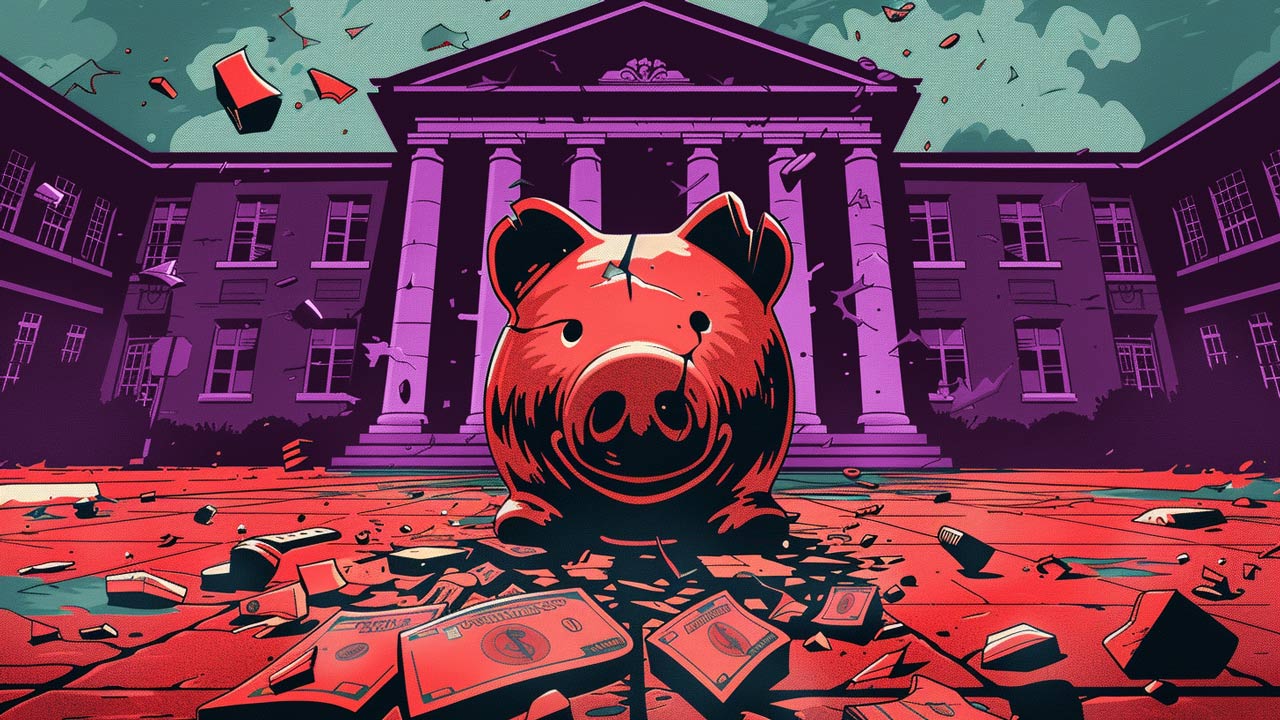Greenspan: Credit the Fed for Bubbles, but Not Weak Economy (Video)
In his latest video blog, Peter Schiff briefly reviews last week’s negative economic data. He then looks at a recent public interview with Alan Greenspan, who believes that the US economy is not nearly as strong as everyone would like to believe. While Greenspan blames this on Congress, he simultaneously credits the Federal Reserve for inflating the current stock market bubble. All this from an economist who once criticized the Fed for market manipulation. How the times have changed.
I think Alan Greenspan knows it’s going to end badly. That’s why he’s advocating that people buy gold. But in this particular interview, he’s trying to absolve the Fed, because he’s trying to absolve himself.”
Highlights from the video:
“Today, the government released its revised estimates for 4th quarter GDP. The last time I did a video blog, they came out with the initial estimate, which was 2.6%. At the time, I said the number would likely be revised down closer to 2%. That is, in fact, what happened. They revised it down to 2.18%…
“The market pretty much shrugged off the bad news, maybe because they were bracing for even worse news. I think the expectation was 2.1%. So they reduced it slightly less than people were expecting. Although, remember, they’re going to revise it again next month. So I still think there’s a good chance that we’ll end up with a 1 handle on 4th quarter GDP.
“What’s really significant is the rapidity of the slowdown from 5% in Q3 to 2.18% in Q4. The only reason the number is so high, is because they assume that inflation is so low. They assumed an annualized inflation rate of 0.1%… When they came out with the initial estimate, they assumed annualized inflation of 0%. Now it’s just 0.1%. Even with an inflation rate so low, we still just barely got to 2.2% on 4th quarter GDP.
“Of course, all the economic data that’s come out that’s pertinent to January and February that is going to go into computing 1st quarter GDP has been horrible. Particularly horrible was today’s release of the February Chicago Purchasing Manners Index, the PMI. They were expecting this index to register 58.7. Instead, it plunged all the way down to 45.8. Anything below 50 indicates contraction… This monthly drop is the biggest monthly decline since October 2008. Remember what was going on in October 2008? This was the financial crisis, the beginning of the whole financial collapse…
“Yet everybody is talking about how great the economy is. That this is lift-off… We’ve got the greatest economy, but we’re printing PMI numbers that we haven’t seen since the Great Recession. Now, of course, this number was also ignored not only by the stock market, but by the foreign exchange markets, the precious metals markets. The for-ex markets have been oblivious to all the negative news…
“One thing that is very interesting this week… is Alan Greenspan. I caught an interview with Greenspan on CNBC yesterday. Before the GDP numbers were released. He was commenting about the US economy. When asked about the US economy, he said he thought it was weak. He did not support the narrative that is being promoted by Janet Yellen and the rest of her cohorts at the Fed or in the Obama administration or on Wall Street. He was very negative on his assessment of the nature of the US economy. Particularly of the jobs…
“Most of his criticism was on US productivity, which has been growing at its slowest rate since 1970s. Greenspan said he thought the biggest problem that we have is a lack of savings. There, I agree with Alan Greenspan. We don’t have enough savings… I’ve been talking about that for years… Savings is what grows an economy. Savings is where you get capital investment… Greenspan acknowledges that we’re not getting that and he says it’s a problem. It’s why the economy is so weak…
“But the most interesting part of his interview is who he blames… He laid all the blame on Congress. He said it’s Congress’ fault. He said it’s because of all the money we’re spending on entitlements, and maybe all the money we’re borrowing to finance the entitlement spending… He’s saying the government, through entitlement spending, is crowding out savings and capital investment.
“What about the Fed’s role? What about keeping interest rates at zero? Doesn’t that do something to discourage savings? … Doesn’t the Fed bear some of the blame for lack of savings when they have deliberately set out to punish savers, to destroy savings? Of course, would it be possible for the government to borrow all this money to pay for all these entitlements if the Fed wasn’t monetizing the debt? If the Fed wasn’t making it so easy for the government to spend and borrow so much money? …
“The most interesting part of the interview is when Alan Greenspan defends the Fed. He comes out and he says that the low interest rates that we have are fueling a rally in the stock market. He says that because the Fed has brought interest rates so low, and because they’ve expanded their balance sheet, and they’re buying up all these bonds… he credits the Fed for the stock market rally… They talk about NASDAQ 5,000 and Alan Greenspan says, ‘Yes, the Fed is responsible for that rally.’
“Then the woman interview him says, ‘So, the Fed is to blame for this?’ Which, to me, indicates to me that she realizes it’s a problem. She uses the word ‘blame.’ Greenspan corrects here and says, ‘Well, no, you don’t want to blame them. Give them credit.’ He says it’s a good thing that they’ve inflated this bubble.
“I guess that the takeaway is if you can’t have a legitimate economic recovery, because Congress is screwing that up by borrowing and spending too much money, then the least thing that the Fed can do is inflate an asset bubble for us. Because if we can’t have a real recovery, let’s have a phony one. If we can’t have legitimate economic growth, let’s just inflate a giant bubble…
“The women interviewing him says, ‘Wait a minute. Couldn’t this end badly?’ … Alan Greenspan’s response – and I’m not making this up – he says, ‘Not necessarily.’ … For the balance of the interview, he doesn’t qualify what he means by that… Has there ever been a bubble that hasn’t ended badly? Alan Greenspan ought to know. He inflated two doozies…
“How can people think that the stock market can keep rising if the Fed raises interest rates? … If Greenspan is right that the Fed is responsible for NASDAQ 5,000 – Well, if the Fed raises interest rates, the NASDAQ isn’t going to stay at 5,000. It’s going to crash. Which is one of the reasons why they’re not going to raise interest rates…
“I think it’s also very telling in Greenspan not wanting to place any of the blame on the Fed. Why doesn’t [he] want to blame the Fed? Because these are his policies. Alan Greenspan wrote the playbook that Ben Bernanke and Janet Yellen followed. So he can’t be critical of Yellen without being critical of himself. He’s trying to absolve himself of any responsibility for the 2008 financial crisis…”
Get Peter Schiff’s latest gold market analysis – click here – for a free subscription to his exclusive weekly email updates.
Interested in learning more about physical gold and silver?
Call 1-888-GOLD-160 and speak with a Precious Metals Specialist today!



 With the AI boom and green energy push fueling fresh copper demand, and with copper mines aging and not enough projects to match demand with supply, the forecasted copper shortage has finally arrived in earnest. Coupled with persistently high inflation in the US, EU, and elsewhere, I predict the industrial metal will surpass its 2022 top to reach a […]
With the AI boom and green energy push fueling fresh copper demand, and with copper mines aging and not enough projects to match demand with supply, the forecasted copper shortage has finally arrived in earnest. Coupled with persistently high inflation in the US, EU, and elsewhere, I predict the industrial metal will surpass its 2022 top to reach a […] America’s trust in its institutions has rapidly eroded over the past 20 years. We have a lower level of trust in our judicial system and elections than most European countries. Some of this is natural, as Americans are uniquely individualistic, but much of it arises from repeated government failures.
America’s trust in its institutions has rapidly eroded over the past 20 years. We have a lower level of trust in our judicial system and elections than most European countries. Some of this is natural, as Americans are uniquely individualistic, but much of it arises from repeated government failures. Decades of negative interest rate policy in Japan have ended. That could mean the end of the $20 trillion “yen carry trade,” once one of the most popular trades on foreign exchange markets, and a chain reaction in the global economy. The yen carry trade is when investors borrow yen to buy assets denominated in […]
Decades of negative interest rate policy in Japan have ended. That could mean the end of the $20 trillion “yen carry trade,” once one of the most popular trades on foreign exchange markets, and a chain reaction in the global economy. The yen carry trade is when investors borrow yen to buy assets denominated in […] With a hot CPI report casting a shadow of doubt on the likelihood of a June interest rate cut, all eyes are on the Fed. But they’ve caught themselves in a “damned if they do, damned if they don’t” moment for the economy — and the news for gold is good regardless.
With a hot CPI report casting a shadow of doubt on the likelihood of a June interest rate cut, all eyes are on the Fed. But they’ve caught themselves in a “damned if they do, damned if they don’t” moment for the economy — and the news for gold is good regardless.  It’s no secret that the American public is wildly ignorant of many issues that are central to the success of our nation. Just a generation ago it would have been unthinkable that less than half of the American population could recognize all three branches of government. America is in most cases far less educated about its government […]
It’s no secret that the American public is wildly ignorant of many issues that are central to the success of our nation. Just a generation ago it would have been unthinkable that less than half of the American population could recognize all three branches of government. America is in most cases far less educated about its government […]
Leave a Reply